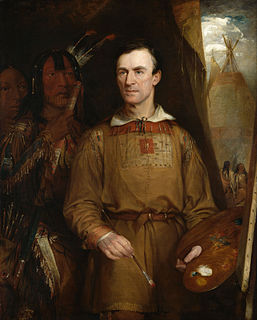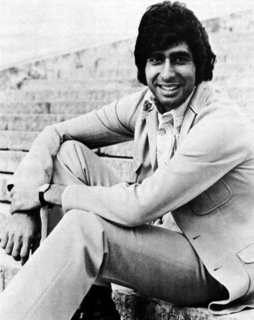A Quote by Plutarch
Though others before him had triumphed three times, Pompeius, by having gained his first triumph over Libya, his second over Europe, and this the last over Asia, seemed in a manner to have brought the whole world into his three triumphs.
Related Quotes
And the fact that the Muslim world, over the course of a decade, rallied and defeated a superpower is an extraordinary symbol in the Islamic world today. You have to remember they were soundly thrashed over the last century by the West, and in the last 50years, three times by the Indians, three times by the Israelis. And so a victory against the Soviets is huge.
To a sprinter, the hundred-yard dash is over in three seconds, not nine or ten. The first 'second' is when you come out of the blocks. The next is when you look up and take your first few strides to attain gain position. By that time the race is actually about half over. The final 'second' - the longest slice of time in the world for an athlete - is that last half of the race, when you really bear down and see what you're made of. It seems to take an eternity, yet is all over before you can think what's happening.
Or perhaps a widow found him and took him in: brought him an easy chair, changed his sweater every morning, shaved his face until the hair stopped growing, took him faithfully to bed with her every night, whispered sweet nothings into what was left of his ear, laughed with him over black coffee, cried with him over yellowing pictures, talked greenly about having kids of her own, began to miss him before she became sick, left him everything in her will, thought of only him as she died, always knew he was fiction but believed in him anyway.
Typically, the hero of the fairy tale achieves a domestic, microcosmic triumph, and the hero of myth a world-historica l, macrocosmic triumph. Whereas the former-the youngest or despised child who becomes the master of extraordinary powers-prevails over his personal oppressors, the latter brings back from his adventure the means for the regeneration of his society as a whole.
I saw that the kingdom must be interior before it can be exterior, that it is a kingdom of ideas, and not one of brute force; that His rule is over hearts, not over places; that His victories must be inward before they can be outward; that He seeks to control spirits rather than bodies; that no triumph could satisfy Him but a triumph that gains the heart; that in short, where God really reigns, the surrender must be the interior surrender of the convicted free men, and not merely the outward surrender of the conquered slave.
There were times when it appeared to Dorian Gray that the whole of history was merely the record of his own life, not as he had lived it in act and circumstand, but as his imagination had created it for him, as it had been in his brain and in his passions. He felt that he had known them all, those strange terrible figures that had passed across the stage of the world and made sin so marvellous, and evil so full of subtlety. It seemed to him that in some mysterious way their lives had been his own.
At the bottom no one in life can help anyone else in life; this one experiences over and over in every conflict and every perplexity: that one is alone. That isn't as bad as it may first appear; and again it is the best thing in life that each should have everything in himself; his fate, his future, his whole expanse and world.
I remember the day before my dad died, I was in a hospital room with him, and he had lived a long life. He was 94, and I helped him get up, and there were two windows separated by the partition. I took him to the first window, and he kind of found his way to the second window, and on the way there was a mirror, and he looked into it, and I saw through the corner of my eye, I remember the look on his face. What came over his face was "So I'm here. I've crossed that bridge."
It was pitch dark. I could hear only the violin, and it was as though Juliek's soul were the bow. He was playing his life. The whole of his life was gliding on the strings--his last hopes, his charred past, his extinguished future. He played as he would never play again...When I awoke, in the daylight, I could see Juliek, opposite me, slumped over, dead. Near him lay his violin, smashed, trampled, a strange overwhelming little corpse.









































